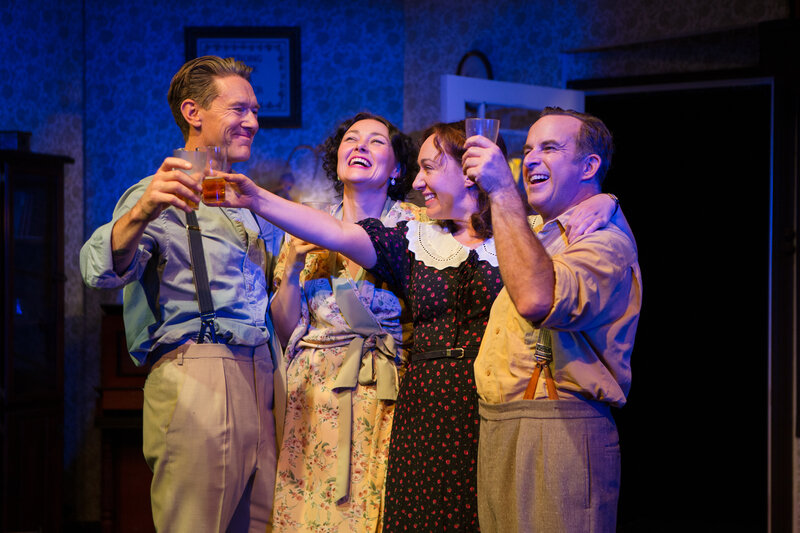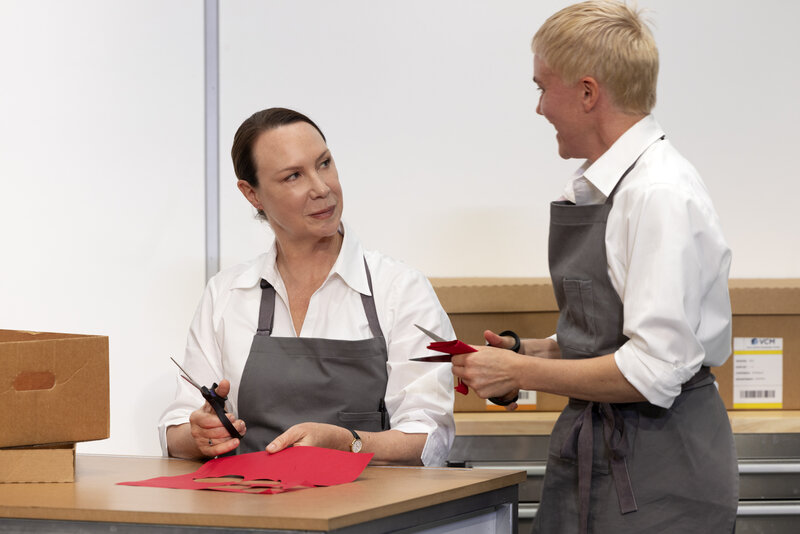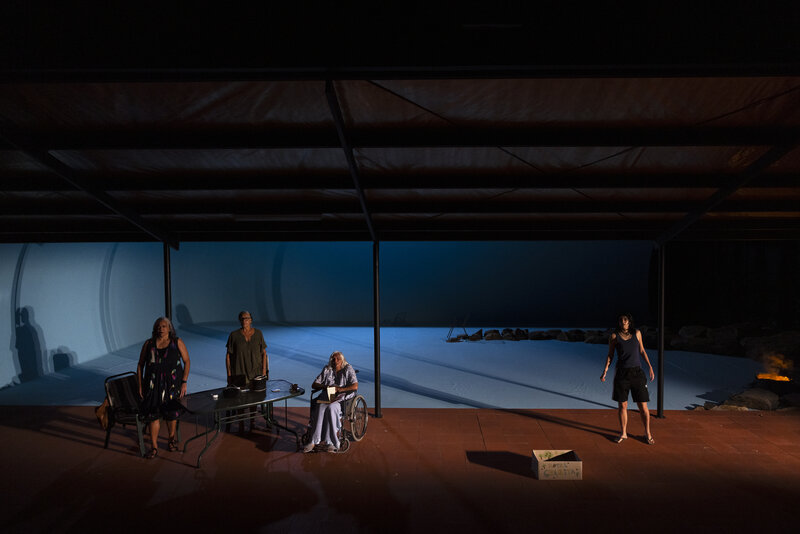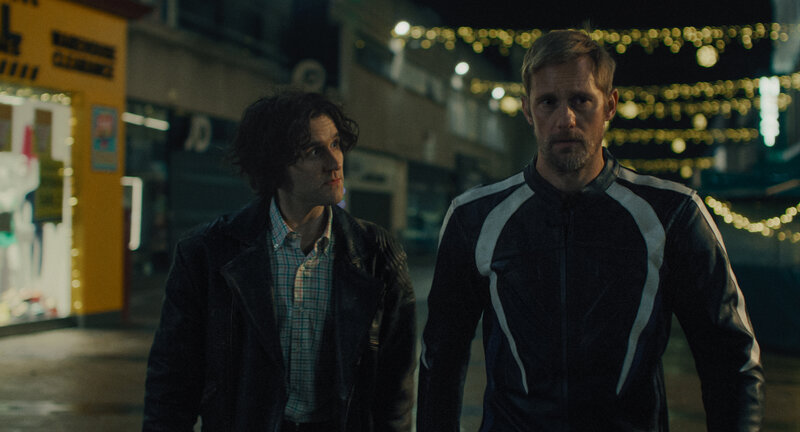Having released one of the best albums of his career in 2015 with But For All These Shrinking Hearts Josh Pyke is about to head out on a national tour. We sat down with the singer-songwriter to talk about his writing process, how he chooses supports and the importance of his fans.
Gareth Hugh Evans: Let’s kick off with the new album, But For All These Shrinking Hearts. I really like it – it feels like the next musical progression for you. How are you feeling about the album?
Josh Pyke: I love it. I have to admit that I don’t listen to my own music ever. But when I make the record I really have to feel like I can stand behind every creative decision one hundred percent, and I feel like it will stand the test of time. In that regard every time I do a record I need to feel like it’s my best work otherwise I don’t want to put it out. So I feel like this album is my best work to date and that’s how I’ve felt about all my records. And of course that’s a completely subjective opinion but I need to feel that otherwise I don’t want to do it.
 GHE: Is part of the reason you don’t listen back because you can hear the stuff you’d like to change or that your songs have evolved beyond the album as you’ve started touring them?
GHE: Is part of the reason you don’t listen back because you can hear the stuff you’d like to change or that your songs have evolved beyond the album as you’ve started touring them?
JP: I just don’t like listening to my own music. I don’t really know. I can’t imagine many musicians sit around listening to their own music – I think that would be weird. It’s just kind of like looking at photos of yourself or looking in the mirror all the time. My kids have started to listen to my music so sometimes I hear it in the car when we’re driving along. Particularly the last two albums there’s nothing when I hear them that I go “I wish I’d done that differently” because after making four and now five albums I kind of know what I’m doing. If I listen to Feeding the Wolves or Memories and Dust there’s probably moments where I go “I probably could have done that better”. But at the same time they’re moments in time – you’ve just got to remember at the point you were making them you were standing by your creative decisions at the time. As long as you always do that then even if you would do something different because your creative instincts have become more honed or more developed, you have to get behind your previous self and go “it’s ok mate, this is where you were at at the time”. But yeah I don’t listen to my music because I would rather listen to other people’s music and then make my own music.
GHE: When you’re performing you still have to reach into the back catalogue for your fans even if you’ve moved on from them creatively.
JP: I love doing that. I love having a strong back catalogue that people want to hear. We were rehearsing last night for these upcoming festival shows, playing songs like “Memories and Dust” and “Lines on Palms” – I love playing those songs. I like playing the songs, I just don’t like listening to the records. The old songs remind me times and places in my life. All of the songs are intensely personal to me and I know what they’re all about to me so it’s kind of like revisiting those experiences. It’s like going back and reading a diary when I’m playing the songs live.
GHE: I’ve seen you live a number of times, both in an intimate solo setting and with a band. You will quite often pull out a new song in those shows, especially in the “fans first” tours – is that important as part of the song writing process to workshop new songs live?
JP: It can be. I think it’s more about keeping things interesting for myself. As a punter when I go to see bands I don’t mind hearing new songs that I don’t know but I’d rather hear songs I do know. From a punter’s point of view it’s kind of why you’re going there – you’ve listened to the records and now you want to hear how that translate live, you want to hear the lyrics that you know and hear how the voice is different live. So when I’m doing it live it is a way to workshop them but it’s more for my sake that anybody else’s. If they work structure wise there’s no better setting than a live setting to hash out those things. It’s like instant market research. Also I write a lot of songs on the road. I remember I played a song “Bats” live on a tour a few years ago and it was a cool song but there was something about it that I never wanted to take further than that experience. I actually tried to demo it a couple of weeks ago and I was like “I don’t know, I think that song’s had its life”. Sometimes that’s as far as they go, playing them once or twice in a live context and then they just disappear.
GHE: A few years ago I saw you live and you’d starting playing around with looping and effects pedals. Has that influenced the way you write a song? Or are they just there to round out the sound of a solo show?
JP: I don’t think it’s influenced how I write songs. I think it’s more influenced getting together solo shows. I do try and approach them differently and sometimes it means that I change the arrangements to better suit a looping pedal. It definitely influences how the songs come up in a solo context but I don’t think it’s crept through into influencing the song writing. I like to keep the song writing pretty organic. Having said that a song like “There’s a Line” which has that kind of synth loop, I did write that not with a loop pedal but by looping that section in pro-tools when I was writing that song. Maybe on reflection it has influenced a little bit – maybe I’m more open to those kind of dynamics within a song.
GHE: Let’s talk about the upcoming tour. You’ve got a couple of festival dates and also some headline shows. Is this going to be a full band tour or is it solo Josh Pyke?
JP: This will be a full band tour which I’m really excited about because I haven’t done a full band tour for almost two years now. The last time was at the beginning of The Beginning and End of Everything so it will be awesome to get out again with the band. I was rehearsing last night with the band in my studio here at home – it’s sounding really great. The new songs in particular are translating really well, really bombastic. Songs like “Songlines” with a full band sound killer so I’m really excited.
GHE: Does playing with a full band influence the set of songs that you choose?
JP: It definitely affects the set. Songs like “Someone to Rust With” and “Late Night Driving” are probably better suited to the solo context. Whereas I have made solo versions of “There’s a Line” and “Songlines” but I love utilising the sounds and dynamics a band can bring to them. And revisiting songs like “Vibrations in Air” that I’ve played solo for years now in a band context.
GHE: One of the things I love about your tours is that you always bring along these up and coming singer songwriters as supports. People like Jack Carty and Patrick James – and this time around you’re taking out BANFF.
JP: Yeah BANFF is doing the majority of the tour and Winterbourne are doing the two Zoo shows.
GHE: Are you heavily involved in choosing who supports you?
JP: There’s been one time that I haven’t been involved and it just wasn’t right. All the other times where I’ve selected the acts myself, even if they’re a bit incongruous to what I do. Like I did a big regional tour with The Jezabels in support of me which sounds like it wouldn’t work, but it worked amazingly. So all the times when I’ve chosen the supports I feel like there’s a better connection and the whole show is more like an event, a curated event, rather than just a bunch of acts playing together on a bill. So it’s important for me to be involved. Basically every time my booking agent gives me a list of 20 acts – unless there’s somebody I just want to straight up have – that are appropriate and available. Then I just go through and listen to all of them and then it just comes down to who’s doing the music I like best.
GHE: It’s also a great opportunity for your supports because you have such a loyal audience that you’ve built up over the years. They’re loyal to you and then that means they’re loyal to artists that you want to support. Your audience becomes their audience.
JP: Yeah. That’s a beautiful thing that I feel really blessed that I can help with. That’s how I came up doing big supports for John Butler and Eskimo Joe and countless others. All these acts that I did long tours with. You still have to work hard, there’s no guarantee, you have to win every fan over one by one. But if the show is curated well then you are playing to an audience who will probably like your music. And then you just have to perform well and hopefully bring those fans over to you. I’m not covetous of my fans – I’m extremely grateful and I feel incredibly blessed to have the support base that I do but I certainly don’t think my fans only have room for being fans of me. I’m happy for them to discover new music through me and to support that music as well.
 GHE: How important has the Josh Pyke fan club, Friends of Josh Pyke, to you throughout your career as a musician?
GHE: How important has the Josh Pyke fan club, Friends of Josh Pyke, to you throughout your career as a musician?
JP: They’re amazing. It’s basically Sabi [Sabrina Robertson] and she’s been doing it for 10 years. She’s amazing. She creates great content and every year she does this yearly wrap up where she runs through everything that’s happened and it’s almost like a reference for me because every year feels like a blur when you’re in the thick of it. She’s just been great and I hope she’s gotten stuff out of it as well – I know that she works in the industry now. I hope that having done some stuff with me has opened some doors and have given her some experience. I’d certainly highly recommend her to anybody, she’s fantastic. It still blows me away that people would do that for me and join a fan club or whatever you want to call it. It kind of articulates what you hope is happening which is that people are really investing in your music in an emotional way where they want to be connected to it.
GHE: So the tour goes through until the end of February. What else can we expect from Josh Pyke in 2016?
JP: I’m really excited about launching this beer with Young Henrys that I’ve been working on. The beer is called “The Summer” and it’s basically a scaled up and refined version of the home brew I’ve been making at home for a few years.
GHE: Nice
JP: The tour kicks off and we’ll expand that regionally for sure. We’re just trying to figure out if we’re going to do that solo or with the band. And then there’s a big project I’m excited about at the end of next year that I don’t want to talk about just yet in case it falls through. It’s a collaborative project – it’s kind of like revisiting a collaborative project. It’s not the Basement Birds!
GHE: That was going to be my follow up question!
JP: I’m really excited about doing that, I think it’s going to be a hell of a lot of fun. Beyond that I don’t know. For the passed ten years I pretty much could have told you what I’d be shooting for in the next few years but now I find that it’s been doing my head in a bit to live like that, just trying to look into the future and think of what I’ll be doing. So I’m really trying to just focus on what I’m doing now and enjoy it. That’s one of my aims for 2016 – to stay in the present as much as possible.
GHE: Fair enough! Well thank you so much for that Josh, I really appreciate your time.
JP: Thank you so much!
Josh Pyke will be touring nationally from the end of January with supports from BANFF and Winterbourne. The full list of dates are below:
Friday 29th January – Twilight at Taronga, Sydney, NSW
Saturday 30th January – Canberra Theatre Playhouse, Canberra, ACT
Thursday 4th February – Studio 56 @ Miami Marketta, Gold Coast, QLD
Friday 5th February – The Triffid, Brisbane, QLD
Saturday 6th February – Star Court Theatre, Lismore, NSW
Friday 12th February – Melbourne Zoo Twilights, Melbourne, VIC
Saturday 13th February – The Wool Exchange, Geelong, VIC
Friday 19th February – Her Majesty’s Theatre, Adelaide, SA
Saturday 20th February – Astor Theatre, Perth, WA
Gareth Hugh Evans
For more of Gareth Hugh Evans’ writing on music, check out Timber and Steel

David Edwards is the former editor of The Blurb and a contributor on film and television




